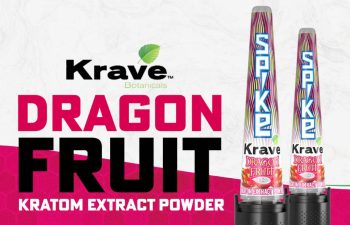Understanding the Key Aspects of the Arkansas Hemp Court Decision
In a historic turn of events, a federal court in Arkansas has handed down a ruling that promises to transform the hemp industry. This monumental decision, recently discussed on the “Kight on Cannabis” website by international cannabis lawyer Rod Kight, carries profound implications that extend far beyond the boundaries of Arkansas. Here’s a comprehensive breakdown of the ruling’s critical aspects and its potential repercussions.
The Genesis of the Arkansas Hemp Law Challenge
The backdrop for this groundbreaking development centers around Senate Bill 358, commonly referred to as “Act 629,” which became law in Arkansas on April 11, 2023. This legislation took a stringent stance by criminalizing hemp products produced using synthetic chemical processes and any other psychoactive substances derived from hemp. Several hemp companies, including Bio Gen LLC, Drippers Vape Shop LLC, The Cigarette Store LLC, and Sky Marketing Corporation (dba Hometown Hero), initiated legal action to challenge the constitutionality of this law.
Key Findings of the Federal Court Ruling
The federal court’s decision, extensively discussed in Rod Kight’s analysis on “Kight on Cannabis,” delivered three pivotal findings that could reshape the hemp landscape nationwide:
Conflict Preemption: The court ruled that the 2018 Farm Bill, a federal statute that declassified hemp as a controlled substance, effectively dictates the definition of hemp. As a result, any state law that contradicts federal law, such as Arkansas’ Act 629, is considered preempted. This reaffirms the centrality of delta-9 THC concentration as the sole criterion for distinguishing lawful hemp from illegal marijuana. Significantly, this metric is extended to encompass all hemp products, including those containing synthetic and intoxicating cannabinoids.
Express Preemption: The court elucidated that states have the authority to regulate hemp cultivation more stringently than federal law. However, they are barred from enacting laws that obstruct the interstate transportation of lawful hemp products and derivatives. This clarification ensures the unimpeded flow of hemp products across state lines.
Void for Vagueness: Act 629 was found to contain vague terms and lacked clear definitions, a violation of the Due Process Clause. This discovery challenges the common practice in many states, where hemp products are restricted based on ambiguous terms such as “synthetic” and “psychoactive.”
Implications for Smoke Shop Retailers and the Hemp Industry
Arkansas Victory: Smoke shop retailers and the hemp industry in Arkansas are the immediate beneficiaries, as the court’s decision effectively nullifies Act 629, rejuvenating the state’s hemp market.
Nationwide Impact: While the ruling directly impacts Arkansas, it sets a precedent for challenging restrictive hemp laws in other states. This could set the stage for more inclusive and progressive hemp regulations at the national level.
Clarity on Vague Terms: The court’s decision sends an unequivocal message that ambiguous terms like “synthetic” and “psychoactive” cannot be used to restrict hemp and hemp products. This newfound clarity offers a solid foundation for industry expansion and innovation.
Wrap Up
For the hemp industry in Arkansas, this federal court ruling, as described by Kight, is nothing short of an “unqualified grand slam.” The court’s decision has not only halted the enforcement of Act 629 but has swung open the doors to the state’s once-thriving hemp market, offering a fresh start to hemp businesses within Arkansas.
However, the implications of this ruling transcend state lines. While it directly impacts Arkansas, it sets a powerful precedent that could potentially lead to challenges against restrictive hemp laws in other states. This legal roadmap, as laid out in the court’s findings, paves the way for legal action against state laws that impose limitations on hemp, its derivatives, and various hemp products. This includes but is not limited to THCa, D8, D10, HHC, THCP, and THCa hemp flower.
This development comes as a welcome relief, especially in the context of numerous states enacting laws that, in Kight’s view, unconstitutionally restrict and prohibit hemp products that indisputably align with the guidelines of the 2018 Farm Bill. As the hemp industry continues to evolve, these legal battles will undoubtedly be watched with anticipation. Moreover, the impending enactment of the next Farm Bill adds another layer of significance to these unfolding events, setting the stage for a transformative chapter in the hemp industry’s journey.
















